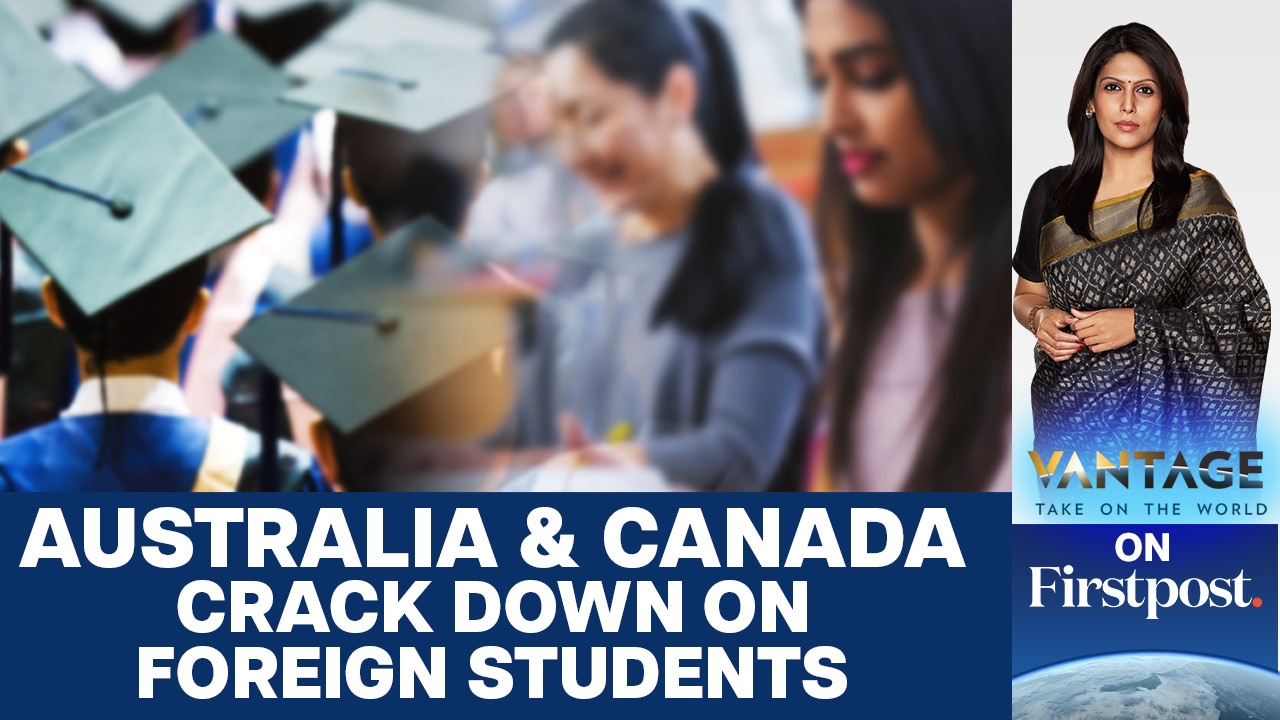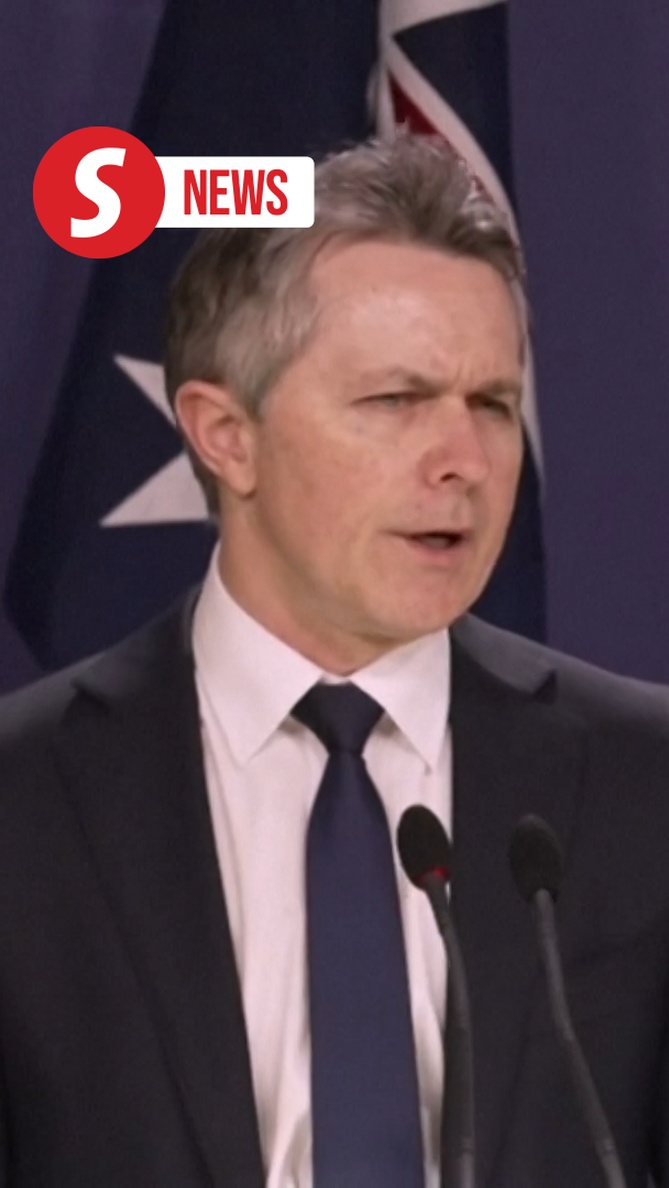Story by Huw Watkin • 16h •
The focus on international student fees has led to soaring class sizes and diminished academic support, raising concerns about quality
Australia is facing a fierce backlash over cuts to its international student intake, with critics labelling the measures racist and detrimental to the nation's hard-won status as a global leader in higher education. Detractors warn that the move not only threatens local student enrolments but also risks tens of thousands of jobs and billions in export income - a staggering act of economic self-sabotage.
However, noticeably absent from the flood of protest has been any acknowledgement of what critics argue is the greatest threat to the sector's integrity: the entrenchment of a corporate culture that has prioritised profit, enriched university executives and private consultants, and left academics marginalised, demoralised and burned out.
"University administrations are dominated by businesspeople who generally have little experience ... are contemptuous of teaching staff and unforgiving of criticism," said one academic in Western Australia who requested anonymity for fear of repercussions.
Do you have questions about the biggest topics and trends from around the world? Get the answers with SCMP Knowledge, our new platform of curated content with explainers, FAQs, analyses and infographics brought to you by our award-winning team.
"They have undermined security of employment, eroded pay and working conditions, and imposed ever-increasing teaching and administrative workloads ... [they] have made academic life untenable. I would not recommend a career in academia to anybody."
Related video: Australia to Propose Foreign Student Limits (Bloomberg)
Critics say the plan risks crimping universities revenues
Duration 7:56
View on Watch

DailymotionUniversity News: Some students see class and staff cuts
2:00

FirstpostAustralia Follows Canada: Puts Limit on International Students
6:39

DailymotionAustralia to limit foreign student enrolments in migration crackdown
1:28
Australian's universities have long been held in high esteem. Following World War II, they enjoyed widespread support as bastions of "universal" knowledge, fostering a broad understanding of the world. The sector grew steadily in the 1960s and 1970s, providing free education to Australians while expanding to host as many as 25,000 international students annually by the early 1980s.
But nearly four decades of "reform" has left some 3 million local graduates burdened with A$75 billion (US$50 billion) in student debt, and built a behemoth that caters to hundreds of thousands of international students paying considerable tuition fees. Turbo-charged by policies producing "job ready" graduates and a path to permanent residency, Australia's tertiary education sector has morphed into a transnational business which generated some A$36 billion in economic activity last year.
International students now comprise 30 per cent of Australia's university student population. At some institutions they make up nearly half of undergraduates and 80 per cent of postgraduates. More than 1 million foreign nationals - nearly 4 per cent of the population - live in Australia on student or graduate visas.
Proposals to reduce international student numbers are under parliamentary review and expected to become law soon. These and other measures aim to curtail visa abuse, alleviate housing and living cost pressures and distribute enrolments more evenly across the sector, limiting international student enrolments at public universities to 145,000 next year, similar to pre-Covid levels.

International students now comprise 30 per cent of Australia's university student population. Photo: AFP
Sources of profit
However, academics interviewed by This Week in Asia argue that these measures are unlikely to address the growing trend of "corporatisation", which has contributed to an increase in the student-to-teacher ratio. In the early 1990s, the ratio was 1:14, but has now risen to 1:23. Meanwhile, non-academic staff comprise 60 per cent of university employees, many of whom work in well-funded marketing and public-relations departments, focusing on brand promotion and student recruitment amid fierce competition between institutions.
"University administrations have become obsessive about their international reputations and student recruitment as sources of profit," said Tim Moore, a former associate professor at Melbourne's Swinburne University of Technology, who recently opted for early retirement due to growing disillusionment.
"Unlike government funding, the huge financial resources that come from international student fees allow for discretionary spending," he said, adding that this had led to a proliferation of non-academic staff on exorbitant salaries, while resources have been redirected away from teaching faculties, causing significant resentment.
The list of grievances among academics who spoke to This Week in Asia was extensive. It includes arbitrary and often vindictive managerial practices, pressure to pass failing students - especially within the international cohort - wage theft amounting to at least A$160 million, and dismantling established career paths in favour of short-term and casual contracts.
Excessive pay for vice-chancellors has become a particularly contentious issue. Australian vice-chancellors earn an average annual salary of around A$1 million, roughly twice that of their counterparts in the UK and Canada and even surpassing those in the United States. Research by the National Tertiary Education Union revealed that last year, the highest-paid vice-chancellors in Victoria earned six times more than the state's most senior professors.
Any criticism about the direction a university is taking is scarcely toleratedTim Moore, former associate professor
Moore said that the shift of resources and power away from teaching staff and towards management accelerated in the mid-2000s, driven by a market ideology imposed on the academic sector. Academics who historically held governing roles have been purged from university councils, replaced by figures from the business world, he said.
"Another consequence is that any criticism about the direction a university is taking is scarcely tolerated," he said. "Academic freedom within universities is much diminished, and faculties, once the locus of vigorous and critical debate, the lifeblood of any university, are ... a shadow of their former selves."
Recent research by Academics for Public Universities found that fewer than one-third of university council members possess any educational expertise. Alessandro Pelizzon, a founding member of the advocacy group for public university interests and an associate professor of law at Queensland's University of the Sunshine Coast, said that this shift has led to increasingly autocratic councils focused on property development and investments, with decisions shielded from scrutiny due to lax governance requirements. "Australia's public universities now mimic commercial organisations that have much less transparency required by law of the models they have come to resemble," he said.
James Guthrie, professor of accounting at Macquarie University in New South Wales, added that management frequently invokes the concept of commercial-in-confidence to restrict public access to information about income, investments, expenditures and debt. In a working paper to be presented at an October conference, he details how the increased reliance on consultancy firms has exacerbated governance issues within Australia's public sector. "Our research vividly demonstrates how the surge in consultants ... has given rise to managerialism and marketisation."
Guthrie's paper highlights that significant numbers of current or former employees of these consultancy firms have been appointed to university councils. A review of several university websites revealed that such individuals are involved with the University of South Australia, the University of Tasmania, the University of Melbourne, the University of Newcastle, and the University of Wollongong.

Proposals to reduce international student numbers in Australia are under parliamentary review and are expected to become law soon. Photo: Shutterstock
Depressed academics
The result has been a collapse of morale, with one recent survey finding that many Australian academics report declining mental health, with large numbers experiencing anxiety, depression and burnout. Research conducted by Queensland's Bond University in 2022 identified "managerialism" as particularly prevalent in Australian universities, leaving academics feeling powerless and overworked amid increasing scrutiny of their work against unrealistic benchmarks.
As Australia's government continues to consider reforms outlined in the Universities Accord released earlier this year, university PR departments strive to enhance the country's image among prospective international students. However, Australia's reputation is reportedly at an all-time low within the global academic community.
"A lot of us think Australia's university system is now beyond repair," said an internationally recognised Victorian academic who requested anonymity because his previous public statements have resulted in disciplinary action.
"Many of my colleagues are hoping to leave Australia, and while the sector is bragging about its excellence, the international academic community knows what is going on. Apart from highly paid executives, no one is coming here to pursue a career," he said.
This article originally appeared on the South China Morning Post (www.scmp.com), the leading news media reporting on China and Asia.
Copyright (c) 2024. South China Morning Post Publishers Ltd. All rights reserved.
No comments:
Post a Comment